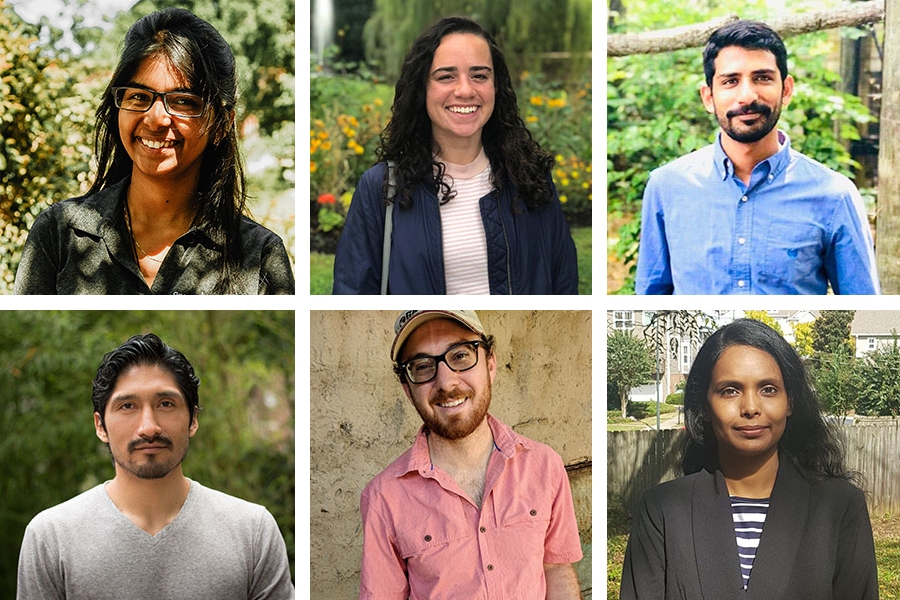
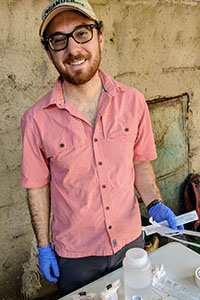 Capone |
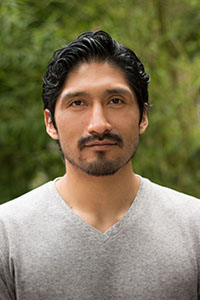 Espinoza |
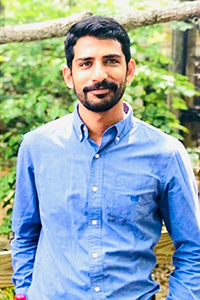 Iftikhar |
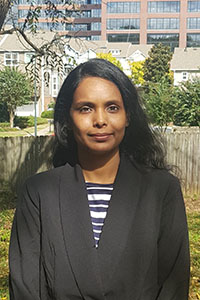 Saroj |
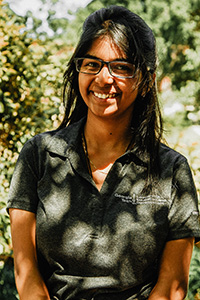 Singh |
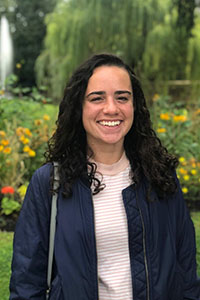 Warren |
Six grad students and post-doctoral researchers from the School of Civil and Environmental Engineering are one step closer to becoming the next generation of educators after being selected as Future Faculty Fellows.
Now in its fourth year, Future Faculty Fellows is a program that aims to build a pipeline of future professors by creating great teachers and helping them build their research and professional relationships.
This year’s Future Faculty Fellows are Drew Capone, Wilson Espinoza, Bilal Iftikhar, Abhilasha Saroj, Prerna Singh and Maria Warren.
The Fellows receive $1,000 from the School to support their development as educators and to explore potential teaching careers. To support their development as teachers, Fellows participate in a Georgia Tech Center for Teaching and Learning program as well as teach a class with one-on-one mentoring and support from a faculty member.
This year’s fellows have pursued an array of research interests within civil and environmental engineering.
Drew Capone defended his dissertation in Environmental Engineering in July 2020 and is now a postdoctoral fellow in Environmental Engineering with Associate Professor Joe Brown.
Capone is using the Fellowship funds to pursue additional research while refining his pedagogical skills as a co-instructor with Brown in CEE 6311 Microbial Principles.
“My overarching career goal is to combine environmental science, engineering, and public health principles to advance our understanding of the problems affecting low-income individuals and improve public health in the communities where these people live,” Capone said.
Wilson Espinoza is pursuing a Ph.D. in civil engineering with the geosystems research group. His goals are to to develop technologically sound solutions for sustainable and efficient extraction of subsurface geothermal energy while serving the community and contributing to STEM education.
Espinoza said receiving the Future Faculty Fellowship is “a unique opportunity to further develop my career, improve my teaching and learn diverse perspectives on engineering and education outside of Georgia Tech. I am grateful to have the support of a mentor while pursuing a career in academia.”
Bilal Iftikhar is a Fulbright scholar working toward a Ph.D. in civil engineering. His research focuses on the optimization of reservoir operation to mitigate the effects of floods and droughts.
In a few years, Iftikhar envisions himself teaching full-time as a professor, and is confident that the Future Faculty Fellows program will help him achieve this goal.
“Like my advisor Dr. Aris P. Georgakakos, I want to serve both in the field and academia to bridge the gap of expertise in this field of utmost need, especially in underdeveloped countries to minimize the devasting effects of floods and drought,” Iftikhar said.
Abhilasha Saroj graduated in August 2020 with a Ph.D. in civil engineering focusing on transportation systems engineering. Her research interests lie in developing simulation tools to evaluate performance impacts of traffic control and operations strategies on mobility, environmental impact, and safety of smart/connected corridors that can be used for improved decision-making.
Saroj plans to use the Future Faculty Fellowship to develop her teaching and leadership skills by enrolling in online courses and attending workshops and conferences. She is especially looking forward to learning skills to enhance teaching in hybrid and online formats.
“I have realized pivotal benefits of good teachers and mentors in developing a growth mindset and in persevering through difficult engineering problems,” Saroj said. “In future, I aspire to become faculty at an academic institution to continue to address transportation challenges and to become a dedicated mentor and teacher.”
Prerna Singh is a civil engineering Ph.D. student focusing on resilient infrastructure systems. She says the Future Faculty Fellowship will allow her to develop teaching skills by providing valuable resources and a community of fellows with the same shared vision.
“I hope to expand my research field and apply it to real-world problems after I graduate,” Singh said. “In the long term, I hope to fulfill this aim by not only doing research myself but by inspiring and training a new generation to solve the wicked problems of the world, just like I was inspired to do so by my exceptional faculty.”
Teaching is already a big part of life for civil engineering Ph.D. student Maria Warren. As a teaching assistant for undergraduate courses, she enjoys working with students while balancing her interests in teaching and research.
“Teaching and research are often considered distinct categories, but I view them as two sides of the same coin,” Warren said. “For example, working in the lab with undergraduate researchers is active learning at its best. One of my favorite experiences is seeing concepts from solid mechanics ‘click’ in students’ brains as we collect data or analyze results. I appreciate the opportunity to pursue problems jointly with students and look forward to doing so in my future career.”
Warren’s research focuses on the behavior of structures under impulsive loading. She does much of her experimentation in CEE’s Structural Engineering and Materials Laboratory, where a high-speed actuator enables her to subject structure-scale specimens to loading that is of similar magnitude and duration to a blast. Warren uses these experimental results in tandem with computational tools to mitigate collapse in structures under impulsive loads.
After graduation, Warren plans to pursue a faculty position with both teaching and research responsibilities.
“One of my favorite things is running into past students — I’ve been stopped on campus, at the gym, or even at the grocery store, for students to tell me that they still look at structures and pick out load paths,” Warren said. “Although many will choose career paths other than structural engineering, knowing that lessons can be impactful outside of a semester timeframe is the most meaningful part of teaching for me.”
Related:
